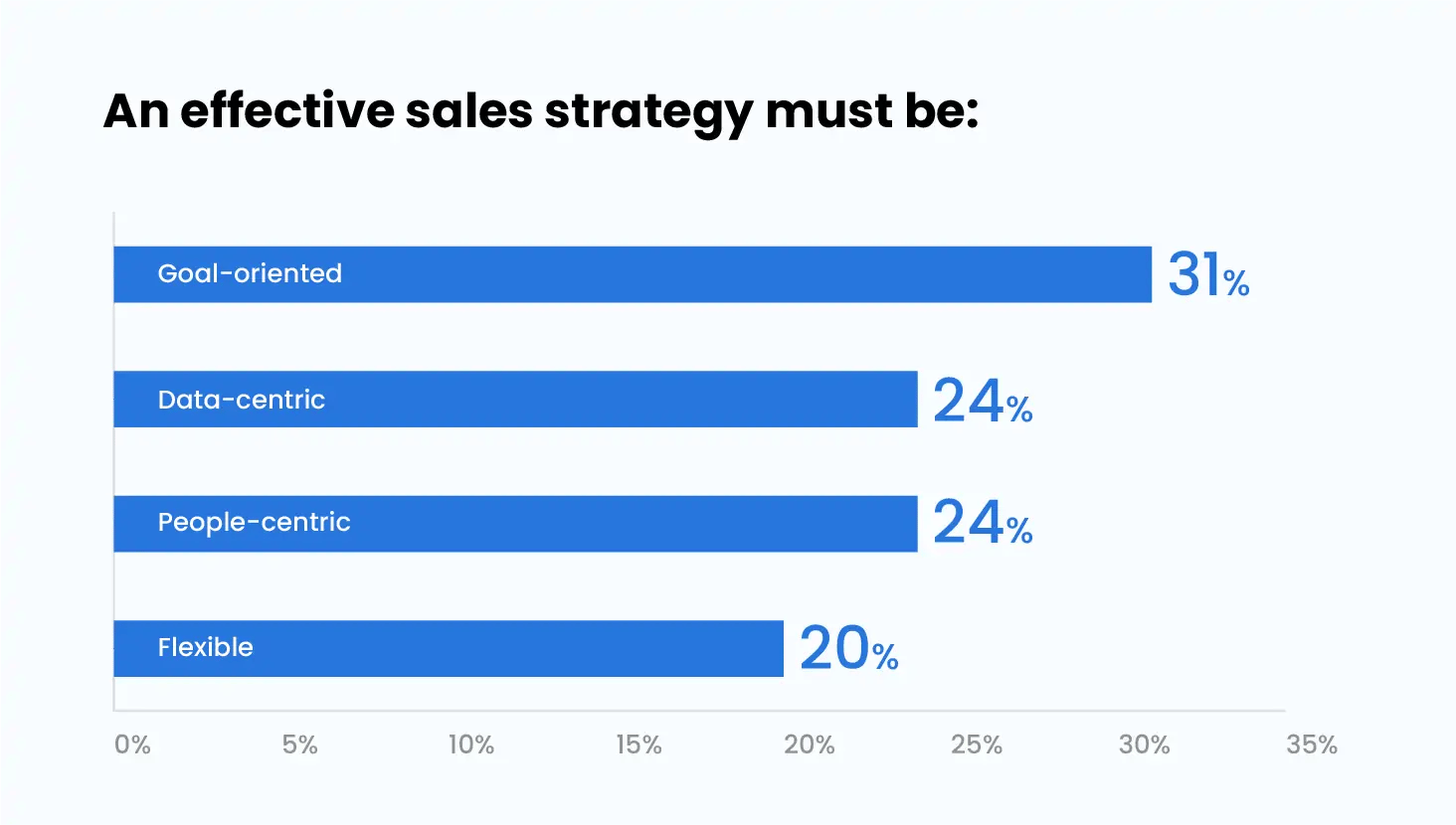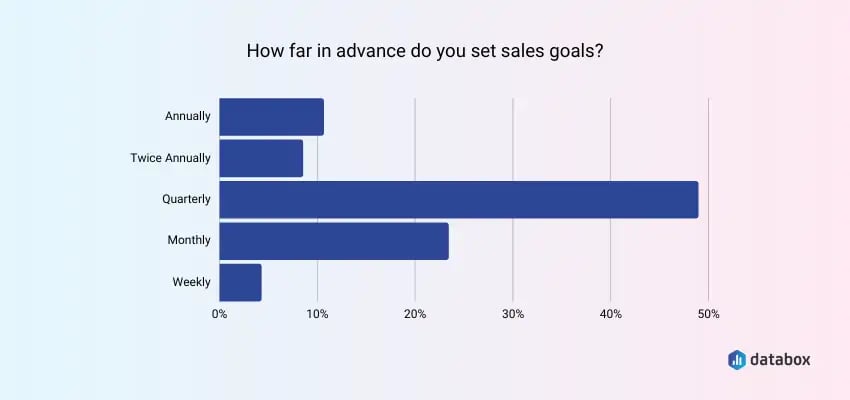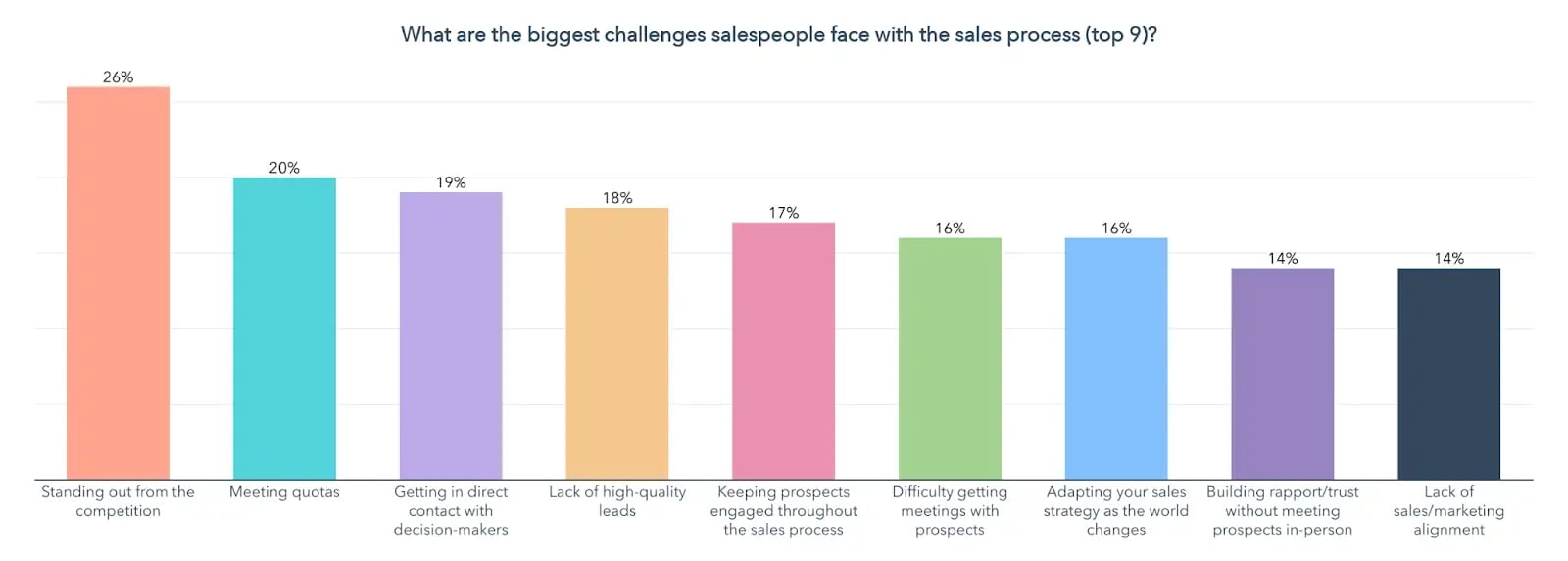In the dynamic world of sales, reps are always on the move.
They must skillfully navigate constantly changing situations and demands to seal the deal. Their role generally grants them the freedom and independence to adapt their techniques to the unique needs and unpredictable preferences of potential customers.
The ability to think on their feet and improvise is a valuable asset. However, amidst this flexibility, there lies a compelling argument that integrating a formal sales process, particularly a well-crafted strategic sales plan, is one of the most effective strategies to improve your sales team's performance.
The importance of a close plan
A long-term close plan is an essential component of your team's sales process. It provides a roadmap for reps to guide their target customers from initial awareness to a successfully closed sale.
Writing a sales plan ensures that no steps are missed along the way. It aligns the efforts with the various touchpoints and interactions outlined in the omnichannel customer journey map, leading to more effective sales outcomes.
Here are the main motivations for ensuring your reps have a standardized close plan.
It pays to have a plan
For years research has shown that teams with structured procedures, like close plans, are more likely to achieve their sales goals. Companies that adopt a formal, guided sales process consistently rank as the highest performers.
These standardized processes help reach company goals and increase revenue. They also allow for greater forecasting accuracy. By implementing a close plan, sales managers can make more accurate predictions and set realistic quotas.
Streamlined operations
The benefits of a close plan extend far beyond the individual sales reps themselves. One of the key advantages of creating a sales plan is that it allows sales managers to redirect their focus toward essential tasks like strategic planning, lead distribution, and workload management. Managers can streamline operations and allocate time and resources more effectively.
A close plan can also significantly speed up the onboarding process of new sales reps. New team members often face a learning curve as they familiarize themselves with a company's products, target audience, ideal customer profiles, and sales methodologies. However, with a well-defined close plan, the onboarding process becomes more efficient and structured.
Enhanced performance
Developing a close plan for your sales reps can be immensely valuable, offering them actionable tips to improve sales performance. It provides a roadmap to guide prospects through the sales cycle, from initial introduction to a successfully closed sale, ensuring no crucial step is missed.
Furthermore, a close plan helps sales professionals identify the root causes of stalled sales. This makes it easier to analyze the effectiveness of actions taken and identify areas for improvement. This level of analysis allows for more informed decision-making and avoids repeated mistakes.
Flexibility within structure
There are some areas in life where structure is essential. When you are preparing for an internal audit, ISO audit checklists are your best friend. When a sales rep is endeavoring to get the final handshake on a deal, a close plan can be an invaluable guide.
While many sales reps enjoy the freedom of their role and the opportunity it affords for creativity and resourcefulness, there are stages in the sales process when a well-defined plan can make all the difference. It helps them stay focused, organized, and proactive, even when facing complex negotiations or challenging obstacles.
Secure portals can also be utilized within the close plan to provide a convenient and protected space for sharing important documents, contracts, and confidential information with prospects, ensuring data security and facilitating efficient collaboration.
The challenges of implementing a close plan
There can be some issues involved in introducing a close plan to your sales team. These are the two key roadblocks you might face.
Lack of adoption
While the benefits of implementing a close plan for sales reps are undeniable, achieving widespread adoption can be a significant challenge. You may find that many sales professionals are reluctant to adhere to a defined close plan.
One of the key factors contributing to the lack of adoption is the resistance to change. Sales reps are often used to their own methods and may be hesitant to embrace a new approach, especially if they have been successful with their existing techniques.
Introducing a close plan requires a shift in mindset and a willingness to step outside their comfort zone. Overcoming this challenge involves effective communication and education about the benefits and advantages that a close plan can bring to their sales performance.
Lack of visibility
In some cases, the lack of visibility and accountability within the sales process can hinder adoption. When sales activities and progress are not properly tracked or evaluated, it becomes challenging to identify areas for improvement and measure effectiveness.
To mitigate this challenge, organizations should utilize CRM systems and reporting mechanisms that offer real-time insights into sales activities, allowing sales managers to provide timely feedback and support.
Establish clear expectations and hold reps accountable. A well-defined close plan and targeted sales coaching strategies can help enhance your team's skills, boost their confidence, and drive consistent sales performance.
Creating an effective close plan
Use these tactics to create a successful close plan to supercharge your sales team’s results.
Give your team a digital edge
The sales process is evolving as we see the integration of artificial intelligence (AI) technologies into operations. The value of AI-guided selling solutions is clear – they can analyze vast amounts of data and recommend the best next actions for sales reps to take.
Incorporate the use of AI sales tools into your close plan to empower your sales team to make data-driven decisions. Learn from successes and mistakes and optimize efficiency by automating repetitive tasks.
Listen to your sales reps
The chances are your sales team knows their stuff, and they have a wealth of information to help you create a standardized close plan. Engage in candid discussions with your reps to gain a deeper understanding of their strategies, techniques, and the challenges they face in the sales process.
They can give you firsthand accounts of customer interactions, roadblocks they’ve encountered, and the methods they’ve employed to overcome them. This valuable input will enable you to identify the best practices within your sales team and incorporate them into the close plan
Understand your customer’s goals
To create a standardized close plan that effectively drives sales success, understanding your customer's goals is paramount. Research what your prospects' aims are to help you develop a plan that has the highest chance of success.
Discover what challenges they want to overcome. This will help you to create a plan that guides your reps, so they can effectively demonstrate to customers what their business will look like with your product or service.
Whether you are selling medical equipment or enterprise financial solutions, it’s the customer’s needs that will best inform your close plan.
Eliminate inefficiencies
Establish which actions successfully bring potential customers through each step of the sales journey. Scrutinizing the results of these actions will help you to identify the activities that have little or no impact.
This will be invaluable in creating your close plan, as you will ensure valuable time and resources are focused on what truly drives progress and leads to successful sales so that reps can optimize their approach at each critical stage.
Keeping on track
One of the main goals of your close plan should be to keep your reps on track. It should be their roadmap – providing them with clear steps and milestones, so they can always see where they are in the process and when it's time to move forward or make adjustments.
There are also tools you can use to make this process easier. Systems like sales dialer software or digital sales rooms keep all communication channels in one place, so they can keep track of their interactions with customers. Explain in your close plan what tools and software you expect your team to use.
Incorporate your overall business goals and strategies into the close plan. Ensure that it aligns with your broader business plan and objectives, so that every step and action taken by your sales team contributes to the growth and success of the organization. This alignment will create synergy and coherence between sales efforts and the overall business strategy.
Root cause analysis
A big benefit of a standardized close plan is its ability to facilitate root cause analysis to establish the reasons for stalled sales. The final part of any close plan – whether a sale was successful or not – should be to systematically examine the process and identify the underlying factors that contribute to sales stagnation.
By mapping out the various stages of the sales journey and closely monitoring each step, sales teams can pinpoint the specific areas that may be impeding progress or causing obstacles. This deep dive into the sales process will help you and your reps discover issues such as ineffective techniques or weak value propositions.
In addition, incorporating customer feedback surveys into your close plan can provide valuable insights into the customer experience and shed light on areas that require improvement. By collecting feedback directly from customers, you can gain a deeper understanding of their needs, preferences, and pain points, allowing you to refine your sales strategies and address any shortcomings.
Empower your sales reps
Implementing a standardized close plan doesn’t mean taking away your rep's autonomy, creativity, or resourcefulness. While the fluid nature of sales may seem to conflict with structured processes, implementing a close plan provides reps with a solid foundation to excel in their roles.
By embracing a formal sales process, organizations can achieve heightened performance, better forecasting accuracy, and improved revenue generation. Empowering your reps with a close plan not only harmonizes structure and flexibility but also unlocks their full potential, leading to increased success in the ever-evolving sales landscape.


 (
( (
( (
( (
(

